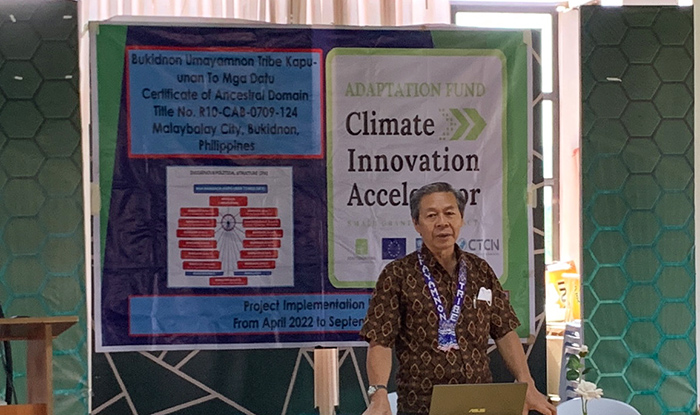Jemuel Perino, Chairman of the Council of Elders of the Bukidnon Umayamnon tribe. Photo: UNDP
[AFCIA Innovation Story]: Forest protectors in the Philippines: How Indigenous groups are safeguarding nature and supporting the fight against climate change
In the mountainous province of Bukidnon in the southern Philippines, the impacts of climate change are becoming clearer and clearer by the day. The area has two difficult rainy and dry seasons and strong winds yearly. In recent years, however, farmers have reported longer periods of drought and heavier rains.
Jemuel Perino has himself noticed the changes. For example, his community has struggled with erosion in the last few years. Climate change, however, is not their only challenge – deforestation and biodiversity loss have also emerged as key threats with devastating implications for culture, youth, and livelihoods.
As Chairman of the Council of Elders of the Bukidnon Umayamnon tribe, Jemuel is not sitting back. He coordinates a locally-led project under the community-based organisation Bukidnon Umayamnon Tribe Kapu-unan To mga Datu (BUKDA) that helps reduce the impacts of climate change while restoring nature, and generating sustainable income for Indigenous peoples.
“The project aims to tackle deforestation and pollution by promoting the planting of bamboo and cocoa by local farmers in Mindanao. Specifically, the project aims to train people on cultivating, harvesting, and marketing those two products. We have 1,442 members and all of them, through their respective Clan Leaders, as represented in the Council of Elders, will benefit from the income of the plantations,” explains Jemuel.
The small but impactful project is focused on an intensive reforestation plan, aiming to plant 20 hectares of vegetation as green cover along the Pulangi River.
Read the original article here.


